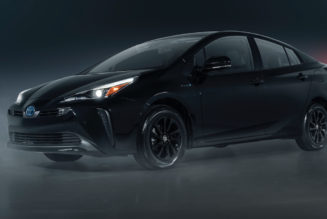Reservations are strong, Ford CEO Jim Farley said during the Deutsche Bank Global Auto Industry Conference. Filling them all will take some time. A shortage of semiconductor chips means inventory is not expected to return to normal levels until 2022.
Ford Bronco Has Two Years of Sales Orders
So far 190,000 customers have reserved a Bronco, the rugged SUV that has seen its launch delayed a number of times, and which has had to sort out an issue with the supplier of its hardtops. But production is underway to fill the 125,000 reservations that have been converted to orders, Farley says. The SUV is essentially sold out for two years.
In April Ford warned that the chip shortage would force it to cut production in half during the quarter that ends this month. Farley says day supply of vehicles is low and will not fully rebound until next year, but in the meantime, Ford will not redesign or alter vehicles to take features out that require semiconductors, as some competitors have done.
Ford Pro Should Lure More Commercial Customers
Farley told investors that the automaker is concentrating on commercial customers. The company created Ford Pro, a global vehicle services and distribution business designed to increase uptime and reduce total cost of ownership for commercial customers, offering them more services.
Ford will offer Pro versions of vehicles, including the 2022 Ford F-150 Lightning Pro work truck. Contributing to the Lightning’s low starting price is scale, sharing parts such as motors with the E-Transit, and developing new battery cells, to be built as part of a joint venture, that drop the cost from $100 per kWh to $80/kWh sometime after 2025.
Ford will also make money on services for commercial vehicles and plans to dramatically increase its supply of parts to service vehicles. But the biggest opportunity, Farley says, is increased commercial vehicle sales, where Ford already has 43 percent share in the U.S. The CEO said he thinks more customers will go from mixed fleets to Ford fleets. The automaker is also working on a commercialized autonomous vehicle business.
Ford Buying Electriphi
To further help commercial customers, Ford said it will acquire Electriphi, a California-based provider of charging and fleet monitoring software to help commercial customers ensure productivity by offering depot charging for EV fleets and help fleet managers monitor their vehicles. Depot charging adds to other options including charging at home or at public stations, the locations of which will be mapped in the vehicle’s telematics system. Customers must sign up for Electriphi’s charge management services.
The Ford+ plan under Farley is designed to guide the automaker’s transition to electric vehicles that are better connected to their owners. Ford is spending $30 billion by 2025 on electrification efforts. Farley says Ford spending will be on par with anyone and will only go up.
Ford’s Rosier Financial Picture
Because demand is so strong, Farley says second-quarter earnings will be better than originally forecast and stronger than a year ago. The financial picture has gotten rosier in recent months as costs have been lower and prices higher, which has helped the bottom line.
General Motors has also painted a rosier picture for the quarter, saying profits could be $4 billion higher than forecast, and GM will further increase its investment in EV and autonomous vehicle technologies to $35 billion through 2025 and add two more battery plants in the U.S. in addition to the two already under construction.










